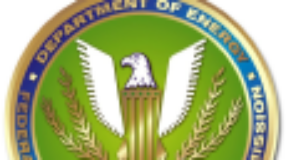Bipartisan legislation will enhance safety, embrace technology and further reduce methane emissions
INGAA Hails Passage of Historic Pipeline Safety Act Reauthorization Bill in 2021 Omnibus Package
Washington, DC, December 21, 2020 – The Interstate Natural Gas Association of America (INGAA) today commends Congress for passing the Protecting our Infrastructure of Pipelines and Enhancing Safety Act (PIPES Act) in the 2021 omnibus spending package. This historic piece of legislation enhances pipeline safety, embraces the latest technologies, and aids in the further reduction of methane emissions by modernizing and strengthening the programs of the Pipeline and Hazardous Materials Safety Administration (PHMSA).
“INGAA supports the PIPES Act and applauds the collaborative, bipartisan, bicameral work that got us here today,” said Amy Andryszak, President and CEO of INGAA. “This legislation is the result of years of effort on both sides of the aisle to provide PHMSA with the necessary resources to continue its important work overseeing our nation’s pipeline infrastructure. New funding for our nation’s pipeline safety program and updates to PHMSA’s regulations to reflect the latest technologies and practices will both enhance safety and benefit the environment. Further, this bill supports the reliable delivery of natural gas to the families, businesses, manufacturers, and power plants across our country that rely daily on the essential infrastructure INGAA members operate."
The PIPES Act reflects a number of enhancements that advance PHMSA’s programs for protecting public safety and the environment. Significant provisions include:
- Updates to PHMSA’s leak detection and repair and class location change regulations to enhance public safety while minimizing methane emissions
- Increased funding to federal and state pipeline safety regulatory agencies and new PHMSA workforce development requirements, enhancing job opportunities at those agencies
- Modernized safety regulations covering LNG export facilities and authorization for a new National Center of Excellence for LNG Safety
- Strengthened safety regulations covering local gas distribution systems
- New grant funding for emergency responders, public safety advocates, and community groups
- Creation of a new PHMSA technology pilot program
- Enhanced PHMSA rulemaking and enforcement transparency
“This historic piece of legislation will bolster our members’ ceaseless efforts to transport natural gas in a safe, reliable and environmentally-responsible manner,” Andryszak said. “The natural gas pipeline industry, which meets roughly one-third of our nation’s energy needs, has made significant progress reducing methane emissions and our members remain committed to building upon this success through the deployment of modern technologies and practices. The PIPES Act reinforces our members’ commitments to safety and the environment, and makes many meaningful and forward-looking enhancements to modernize and strengthen PHMSA’s programs.”
The PIPES Act of 2020 was originally introduced by Senators Deb Fischer (R-NE) and Tammy Duckworth (D-IL) to enhance pipeline safety and reauthorize PHMSA. The bill was amended to reflect provisions related to further reducing methane emissions from transportation infrastructure and providing PHMSA new rulemaking and inspection resources.
For more information on pipeline safety, please visit www.ingaa.org.
###
INGAA represents the U.S. natural gas pipeline industry. INGAA’s members deliver clean, abundant, affordable natural gas throughout North America and operate approximately 200,000 miles of pipelines that serve as an indispensable link between natural gas producers and consumers.







